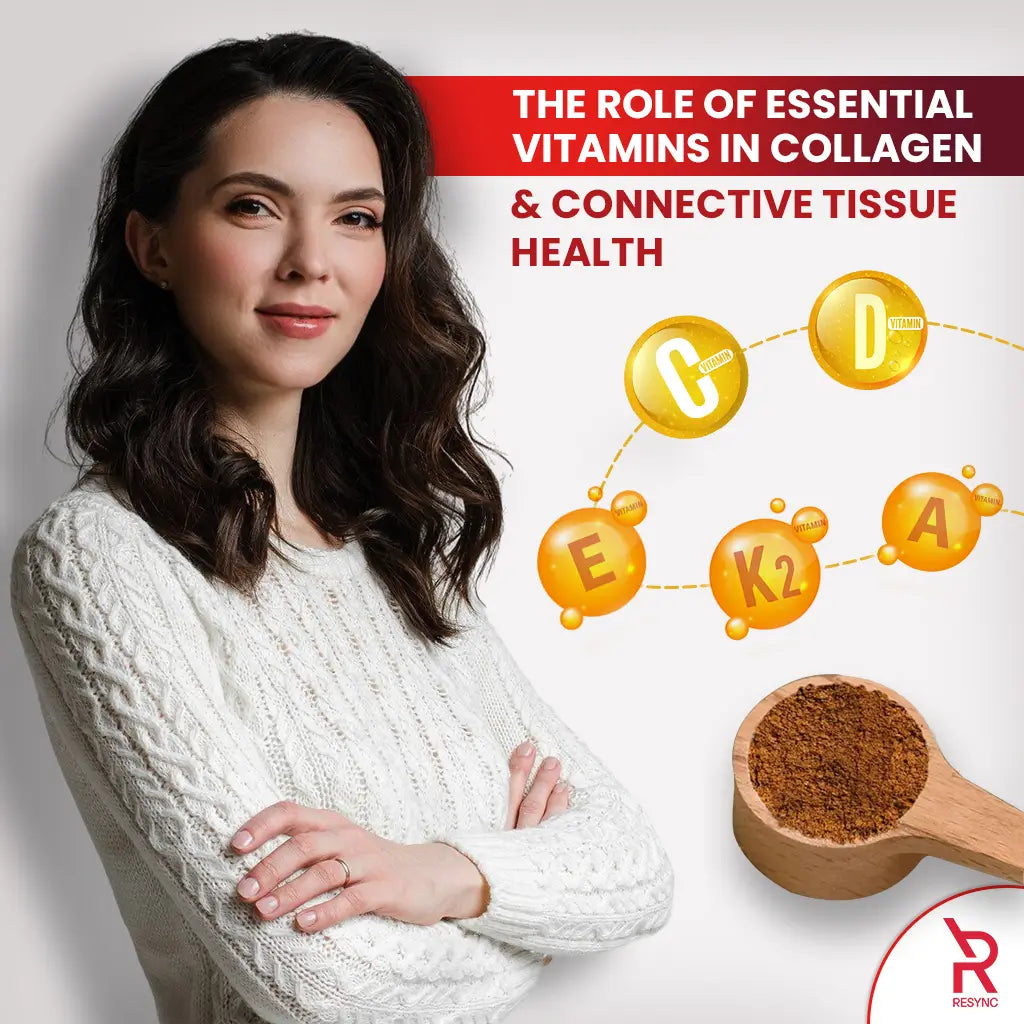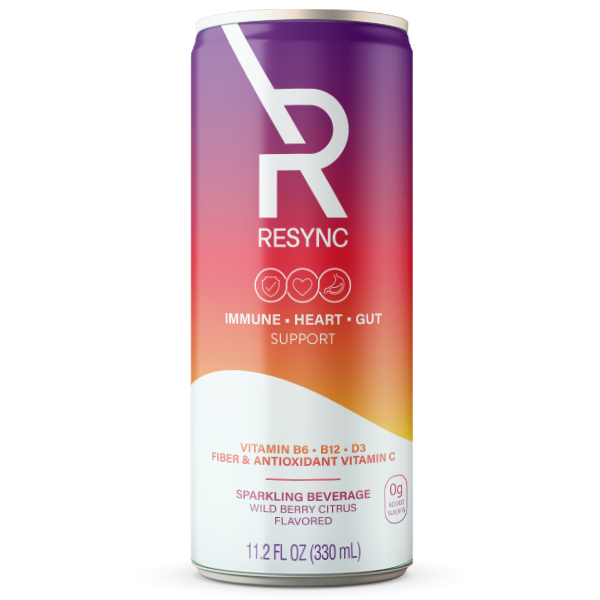
Why Whey Protein Isn’t Enough:
The Protein Upgrade Athletes Overlook
As an athlete, you probably already know that protein is a major component of your body, and you need it to keep your muscles strong, but equally important, the surrounding tissues to stay out of injury.
For years, whey protein has been the cornerstone of athletic nutrition. It is celebrated for promoting muscle growth and expediting recovery with key amino acids like Leucine, Isoleucine, and Valine.
However, as time went by, our understanding of human physiology deepened - it's evident that focusing solely on muscle strength and hypotrophy overlooks critical components of athletic performance—the health of connective tissues that support muscle function and keep our joints healthy - tendons, ligaments, fascia, cartilage, and bones.
All those connective tissues, like muscle, need protein to help you stay strong.
As a side note, did you know your blood is also a connective tissue?It has a fluid matrix plasma that carries blood cells, making it a fluid connective tissue.
If you would like to learn more on that subject, please check one of our online classes. It will make you think twice how you take care of your muscles.
For now, let's go back to protein and why consuming just whey is inefficient in keeping your connective tissue dynamic, elastic, and resilient to injury.
Even though amino acids from whey like, cysteine and methionine support connective tissue repair, and antioxidant buffering, alone they cannot fully support collagen production - the primary protein within connective tissues and the most abundant protein in our body.
That's why integrating collagen protein alongside whey can offer a complete approach to staying strong, expediting recovery, and staying out of injury.
The question is, is one protein better and more important than the other?
This blog will guide you step by step through scientific comparison, addressing each protein's unique benefits. You will know what's best for you.
Understanding Whey Protein
What makes this protein so valuable for our muscles?
- Whey protein gives you essential amino acids (EAAs) and branched-chain amino acids BCAAs.
- There are 20 amino acids in total. Out of the 20 amino acids that make up proteins, our body cannot synthesize 9 of them, meaning we must obtain them from your diet, and these are called essential amino acids.
- Now, inside those 9 EAAs, there are 3 special ones called Branched-Chain Amino Acids (BCAAs):
- Leucine
- Isoleucine
- Valine
And they’re extra crucial for muscle growth & repair. That’s why whey protein is an excellent choice for muscle strength.
However, when we look at building strength, we must consider that muscle function requires integrating the role of the Fascia—a multilayered connective tissue system enveloping and interconnecting muscles. This perspective shifts the focus from viewing muscles as isolated units to recognizing them as components of a bigger, holistic, stronger system.
The research indicates that Fascia can contract in a smooth muscle-like manner, impacting muscle tension, movement patterns, and force transmission (PubMed)
Therefore, when discussing muscle function and what we need nutritionally to keep them strong, it is imperative to consider the role of Fascia, which contributes significantly to movement efficiency and musculoskeletal health.
Therefore, whey protein alone will have limitations, especially if we are looking for a complete protein that supports the entire musculoskeletal (deep) Fascia system (Stecco et al. 2025). Fascia alone is ~70% made of collagen.
But for now, let’s mention the key benefits of why athletes consume whey protein.
Key Benefits of Whey Protein:
- Muscle Strength & Repair: Numerous studies confirm whey protein effectively stimulates muscle growth and accelerates recovery, particularly post-exercise (Science Direct)
- Weight & Appetite Management: Whey enhances satiety, reduces hunger hormones like ghrelin, and promotes fat loss, contributing significantly to weight management strategies (PubMed Central).
- Immune System Support: Whey protein contains lactoferrin and immunoglobulins, providing vital support for immune health (Science Direct).There is more and more science coming out emphasizing the importance of the right source of the lactoferrin for our immune health.
Understanding Collagen Protein
Just like whey protein is one of the most studied nutritional supplements globally, collagen protein is one of the most misunderstood supplements. Not because we do not know its value but because supplement companies create misleading content and claims contradicting the facts.
Before this blog, I wrote other articles addressing some of the most frequently asked questions regarding collagen.
What's better? Bone Broth or Collagen Peptides?
You can also read one of my recent blogs on what vitamins you need to take with collagen protein because you will realize from this blog that taking plain collagen protein will not support connective tissue health.


If you decide just to read this blog, allow me to share the most critical information here.
Scientists have discovered 28 different types of collagen in the human body.
However, collagen type I makes up about 90% of the total collagen in the human body, making it the most abundant type of collagen we need to provide tensile strength to the musculoskeletal connective tissues (Kjaer, 2004).
Collagen is composed of many key amino acids (watch video), and it is predominantly high in glycine, proline, and hydroxyproline, essential for every layer of the connective tissue in our body. Deficiencies in any of these amino acids will impair the synthesis of collagen. They will weaken the tissues surrounding muscles and joints.
It is essential to remember that even though muscle needs only 6% collagen, everything around it (including fascia) needs collagen to stay elastic and strong (see image below).

However, you need more than plain collagen protein powder to make collagen in your body. Allow me to explain.
There are prerequisites to making collagen, and Vitamin C is one of them.
Vitamin C is used by an important enzyme called prolyl hydroxylase, which helps shape and stabilize collagen into its strong triple-helix structure. Without vitamin C, this enzyme can't function, and the collagen your body tries to build becomes weak and unstable (Baar et al., 2021)
Since this vitamin is quickly used during collagen-making, especially after physical stress or injury, it's essential to replenish it daily—ideally in the morning, when levels are at their lowest and your body is ready to start repair.
You can read another blog on the vitamins we need to make collagen. Please understand that the road to making collagen does not end here.
If you want to learn more about what it takes nutritionally to support collagen production and keep your connective tissues healthy, check out our online class here.
Key Benefits of Collagen Protein:
- Joint Pain Reduction & Mobility Improvement: Just 10g of hydrolyzed collagen decreased knee pain in a randomized double-blinded placebo-controlled study in athletes (Clark et al., 2008).
- Double-blinded placebo-controlled clinical trial with a cross-over design showed that runners experiencing Achilles pain benefited from collagen supplementation (Praet et al., 2019).
- Collagen supplementation has been shown to promote recovery, decrease pain, and improve strength and body composition when paired with resistance training.(Ma et al., 2022)
Whey vs. Collagen: Quick Comparison
Whey Protein:
Provides all essential amino acids (EAAs) and branched-chain amino acids (BCAAs) vital for muscle protein synthesis. What’s important to note is that when you only take whey protein within 60 minutes post-workout, the key amino acid glycine that keeps your tendons healthy goes down (if you are interested to learn more watch our class). Tendon is 40% made of glycine, so you need that amino acid post-training to keep your tendons and ligaments healthy. Remember, collagen protein is high in glycine.
Collagen Protein:
Primarily contain non-essential amino acids crucial for all connective tissues that are part of the musculoskeletal (deep) fascia (Stecco et al., 20205). Collagen is very rich in glycine, proline, and hydroxyproline, crucial for:
- Keeping your joints healthy & dynamically stable
- Fascia, ligaments, tendons strength
- Cartilage and bone health
- Skin elasticity
The Protein Shift We Need To Keep The Entire Musculoskeletal (Deep) Fascia System Strong.
As a forward-thinking athlete, who is result-driven, I feel you want to do what’s right for your body, and think beyond muscles.
And in that case, it is time to shift your thinking because your body isn't just made of muscle—it's a complex, multilayered system of blood, fascia, ligaments, tendons, cartilage, and bones that all need targeted protein support.
Relying on whey protein alone is outdated thinking.
To achieve a balanced approach that supports both muscle and connective tissue health, combining whey and collagen proteins is the best move. Whey protein provides the essential amino acids necessary for muscle protein synthesis, while collagen supplies the specific amino acids required for the synthesis and repair of critical connective tissues. This combination ensures that all structural components of the musculoskeletal system receive adequate nutritional support.
A study published in Medicine & Science in Sports & Exercise examined the effects of co-ingesting whey and collagen proteins. The researchers found that this combination stimulated both muscle and connective tissue protein synthesis rates, suggesting that such a blend could effectively support the remodeling of various tissue types during post-exercise recovery.
In today’s world, it's not whey versus collagen—it’s whey plus collagen if you want to perform and feel your best.
The smartest strategy combines both proteins.
Get the Best of Both Worlds With Resync - New Power Move For Athletes.
Beyond Muscle Recovery & Repair: The Ultimate Complete Protein Blend + More
Beyond Muscle Recovery & Repair offers a premium formula combining 11g premium collagen peptides and 11g whey protein with required essential vitamins, minerals, electrolytes, red and more - provides comprehensive health benefits with one scoop:
- Muscle + Connective Tissues & Joint Support
- Anti-Inflammatory Response Post Physical Activity
- Rehydration & Energy Recovery
- Circulation & Heart Health (muscles also need blood flow to recover faster)

Use Code BLOG2025– Save 15%
Optimal Dosage & Best Practices
Whey Protein:
- Recommended dosage: 20–30 grams post-exercise or as meal replacement (source). Remember, when you take whey protein within 60 min post workout, you decrease Glycine amino acid, which is essential to tendon health (tendon is 40% made of glycine) that’s why it is essential to take whey with collagen protein - high in glycine.
Collagen Peptides
Final Thoughts
By the end of the day, it’s all about fueling your body smarter to practice, train, and perform on your terms.
Upgrading your protein strategy to include whey and collagen will provide the balanced support necessary for muscles and all connective tissues, ensuring a more robust and injury-resistant athletic body.
Whey and collagen protein each play a vital role in supporting how you look, feel, and move. While whey is essential for muscle strength and repair, collagen targets everything around it - your fascia and connective tissue——often neglected, contributing to 80% of sports injuries.
This isn’t about choosing one or the other.
In today’s world, I might be repeating myself here, it’s not whey versus collagen—it’s whey plus collagen if you want to feel and perform your best with no setbacks.Beyond Muscle Recovery & Repair offers both proteins with much more to deliver full-body recovery support, so you can keep doing the things you love—stronger, longer, and with fewer limitations.
👉 Discover Complete Protein Support with Resync
👉 Checkout the top 5 best collagen supplements
👉 Checkout what vitamins you need to make collagen
Subscribe and never miss out!
Resync is backed by research. We break down complex science into practical takeaways you can use today. When you have the right information, you are empowered to make the decision that’s right for you. If there’s something you want to know more about, let us know by leaving a comment, contacting us or getting in touch on social media!
Helping you lead a healthier life,
-The Resync Team

JOIN OUR NEWSLETTER
Stay up to date with the latest science-backed data, receive expert knowledge, and healthy inspiration for you and your family.
Get 15% Off Your Order When You Sign Up For Our Newsletter
Save 20% Off All Resync Products
Use Code: BLOG2021
Shop Now








